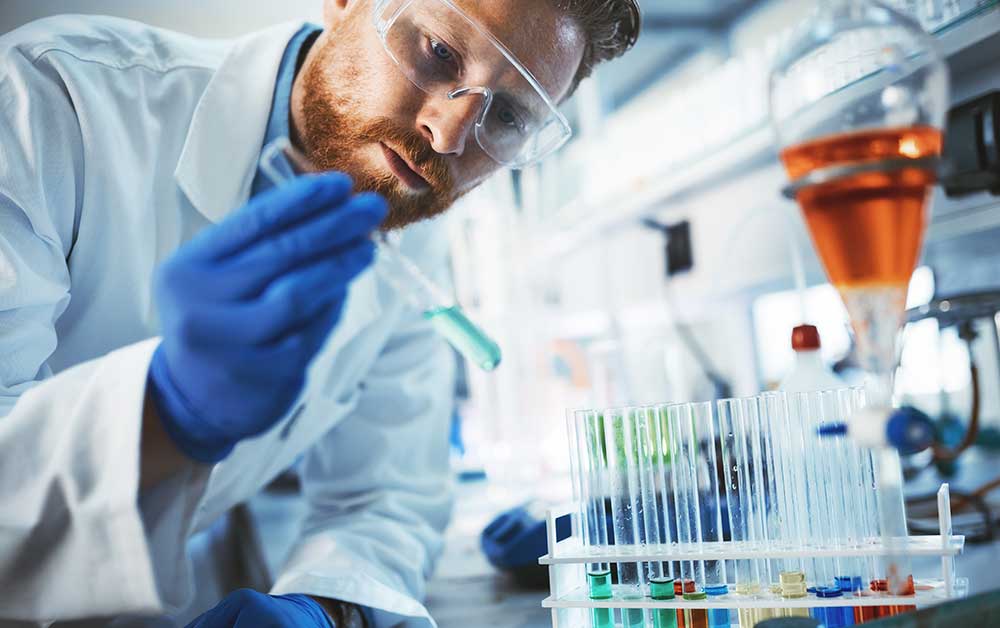Disclaimer: The information on our website is provided for general information purposes only. We make no representations or warranties of any kind, express or implied, about the completeness, accuracy, reliability, suitability or availability with respect to the website or the information contained on our website for any purpose. Any reliance on such information is therefore strictly at your own risk and we are not liable for any damages or losses arising out of or resulting from your reliance on any information contained on our website.
A chemical technician assists chemists and chemical engineers research, develop, produce, and test chemical products and processes by using laboratory techniques and instruments. They usually work full-time in laboratories or manufacturing facilities where they conduct experiments and monitor production processes. Watch a video to learn what a chemical technician does:
How to Become a Chemical Technician

Chemical technicians typically require either an associate’s degree or 2 years of postsecondary education with course work in math, physics, biology, and chemistry as an important part of their studies, as well as, statistics and computer science. However, an essential part of the degree program is laboratory time that provides the student with hands-on experience conducting experiments. They also gain practice in the use of proper techniques and the use of instruments.
Internships and cooperative education programs are available that also assist students to acquire work experience while attending school. On the job training is usually given to a new employee. A chemical technician should be skilled in critical thinking, observation, time-management, communication, and interpersonal skills, as well as, having the ability to use technology.
Job Description of a Chemical Technician
A chemical technician typically has the duties of monitoring chemical processes and product quality. They would troubleshoot production problems or malfunctioning equipment. They set up and maintain equipment and laboratory instruments. He or she prepares chemical solutions, conduct and analyze the results of experiments and tests for a multitude of purposes to include development and research.
A Chemical technician prepares graphs, technical reports, and charts and may give a summarized presentation of their findings. When a Chemical technician works with a team they may need to serve as mentors to newer chemists. Those working in laboratories may assist scientists and chemists develop new medicines. Some Chemical technicians are employed in manufacturing facilities that develop efficient production processes.
Chemical Technician Career Video Transcript
With a combination of scientific interests and hands-on skills, chemical technicians improve consumer products… from baby shampoo and breakfast cereal to engine oil. They use laboratory instruments and techniques to help research, produce, and test chemical products and processes. Chemical technicians generally work on teams led by chemists or chemical engineers… who direct their work and evaluate the results.
Technicians work in laboratories or industrial facilities such as chemical and pharmaceutical manufacturing plants. In labs, chemical technicians help conduct experiments in research and development —for example, helping develop new medicines, or clean energy and pollution control solutions. They prepare reports and give presentations to describe results. Those who work in manufacturing… assist in developing more efficient production processes, and troubleshoot fixes for malfunctioning instruments.
Most chemical technicians work full time, and may work extra hours to meet project deadlines. Some work irregular hours monitoring experiments or plant operations. Following proper procedures is essential in this field… to avoid exposure to health or safety hazards. For most jobs, chemical technicians need an associate’s degree in applied science or chemical technology, or two years of related college coursework. Lab experience at school is critical to gain hands-on practice conducting experiments and using instruments properly.
Article Citations
- Bureau of Labor Statistics, U.S. Department of Labor, Occupational Outlook Handbook, Chemical Technicians.
- National Center for O*NET Development. 19-4031.00. O*NET OnLine.
- The career video is in the public domain from the U. S. Department of Labor, Employment and Training Administration.

